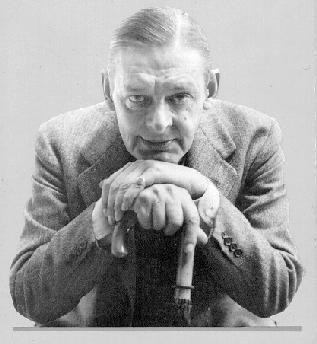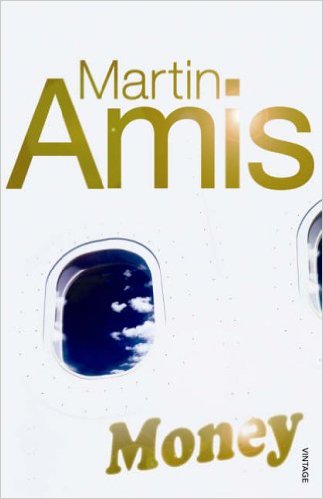
Two of the most fundamental and universal issues of existence and ontology concern the relationships of individuals with their own Selves and those they have with other human beings. Upon entering a new and unprecedented age – an age of profound skepticism and cynicism – the modernists encountered challenges of a new front; with the façades and pretenses of the humanistic ideals of previous ages having fallen apart, there remained an anxiety of facing the emptiness of the human “Being”. There is a fear that humanity has become as cold and empty as the concrete buildings that surround it. The individual’s alienation from one’s Self and from human fellowship are themes that T.S. Eliot explores in “Preludes” and “The Love Song of J. Alfred Prufrock”. In “Preludes”, the speaker presents the people of his (or her) city to be unaware of their alienation from their sense of humanity. Being conscious of such an alienation, he, as an observer, is in turn depicted to be in a state of mourning. The speaker in “Prufrock”, to a more personal degree, is shown to be aware of his own alienation from the world, and such a self-awareness manifests itself through his state of melancholia.
Sigmund Freud’s work on Mourning and Melancholia (1917)[1] distinguishes for us the differences between the two terms. “Mourning,” Freud writes, “is regularly the reaction to the loss of a loved person, or to the loss of some abstraction which has taken the place of one.”[2] In melancholia, “one cannot see clearly what it is that has been lost, and it is all the more reasonable to suppose that the patient cannot consciously perceive what he has lost either.”[3] “In mourning,” Freud puts in another way, “it is the world which has become poor and empty; in melancholia it is the ego itself.”[4] It appears, then, that mourning according to Freud is a condition whereby an individual is in a position of being inside looking out, and in melancholia the individual is outside looking in. The mourning subject is thus in a state of extrospection, and the melancholic subject in a state of introspection[5].
In the “Preludes”, we are presented with a speaker and his/her omniscient observations. The first two movements however do not immediately indicate the presence of an interactive speaker – a first-person narrator in particular – as they seem to be fragmentary descriptions of city life by a third-person, uninvolved narrator. In fact, it is not until the third movement that the pronoun “you” is mentioned, and the possibility of the Preludes being a dramatic monologue, when taken as a whole, comes into play. But the “I” that appears in IV.10 and the idea that the “I” is interacting with “these images” (IV.11) contextualise the previous passages. They become the speaker’s very observations of the city, its atmosphere, and its people.
And what does the speaker observe? He notes the presence of “burnt-out ends of smoky days” (I.4), “withered leaves” (I.7), “vacant lots” (I.8), “broken blinds” (I.10), and a “lonely cab-horse” (I.12). The adjectives attached to the speaker’s descriptions mark a sense of absence, decay, and isolation that pervades throughout the city. If we take the descriptions further as Symbolistic[6] imageries, they become indicative of the internal emptiness of the city’s inhabitants. Indeed, when the speaker begins to observe the “you” of the third movement, he/ she draws the readers (to whom “you” is possibly referring), and consequently the whole of humanity, into the city space and the poem’s artistic frame. What we have then is a totalising and omniscient observation of modern humanity by the poem’s speaker.
The modern human being here is alienated from its sense of humanity. We see a soul “trampled by insistent feet / At four and five and six o’clock” (IV.3-4), unnoticed by people during the business of rush hours. The human Soul, far from being sublime, is “constituted” by a “thousand sordid images” (III.5,4). The only feeling beings are the personifications of evening and morning in the first and second movements. Termed by Montgomery as “collectives”[7], the entities of evening and morning are the only ones conscious of the sceneries in the respective movements, collecting “the small world of each consciousness.”[8] Such an observation of modern humanity’s condition draws the speaker into a state of mourning. He “clings” to “fancies that are curled around these images” (IV.10-11) – his observations – in an attempt to hold onto “the notion of some infinitely gentle / Infinitely suffering thing” (IV.12-13). This “thing” is the lost sense of humanity of the speaker’s community: the city for him has become “poor and empty”[9] – and so have its residents. The speaker is unable to redeem this lost and fragile “thing,” and thus ironically comforts himself with the idea that “the worlds revolve like ancient women / Gathering fuel in vacant lots” (IV.15-16). The courses of human actions are as vain and absurd as the attempts to gather fuel in empty spaces.
In “Prufrock,” the speaker is conscious of his own alienation from the world. Prufrock’s state of alienation is immediately set up in the poem through the epigraph from Guido da Montefeltro, wherein he implies that Dante will not be able to return to the human world. Juxtaposed into the poem, the epigraph subsequently reflects Prufrock’s own isolation from the human world. “Do I dare / Disturb the universe?” (45-46)[10] Prufrock asks. Indeed, he is a character hesitant to impose the footprints of his essence – his actions – upon the universe. He frequently repeats the question “Do I dare?” and asks moreover with the same frequency, “How should I presume?” He opts to remain as an observer, unnoticed, as he is in “the room” where “women come and go / Talking of Michelangelo” (13-14). Prufrock adds that he “should have been a pair of ragged claws / Scuttling across the floors of silent seas,” (73-74) marking his extreme displacement from human society. Here he is not only non-human (he is depicted through the synecdoche as something like a crab) but he is more importantly situated far away from the business of the modern city, scuttling unnoticeably in the still waters. He sees the “mermaids singing,” but they sing “each to each” (124). He understands his complete exclusion, and simply says, “I do not think that they will sing to me” (125). He settles on being one who merely observes them, seeing the mermaids “riding seaward on the waves” (126). Prufrock’s isolation and exclusion put him in the position of an unnoticed observer, but eventually he becomes seemingly comfortable with it.
Nevertheless, Prufrock’s alienation and isolation drive him into melancholia, a condition characterised by “an extraordinary diminution in his self-regard, an impoverishment of his ego on a grand scale”[11]. He knows that he is “no prophet” and such a fact is “no great matter” (83). He describes himself as a man of high class, possessing a “morning coat” (42) and a “necktie rich and modest” (43), but after having “seen the eternal Footman hold [his] coat, and snicker” (85) – an image of Death awaiting – is made afraid of Death’s insubordination; the illusion of security his class offers him no longer seems to him believable. Prufrock also admits that he is “not Prince Hamlet, nor was meant to be” (111), but he quickly moves into further diminishing his status to “an attendant lord” (112) and eventually to “the Fool” (119). Ultimately all the walls that Prufrock raises to protect his ego break down, and all that is left is someone who, despite his sophistication, fails to break through the boundaries of the “formulated phrase,” and who, consequently, becomes himself formulated, paralyzed and unable to do anything about his isolation.
What we have then in “Preludes” and “Prufrock” are characters who deal, directly or indirectly, with alienation, but who ultimately are unable to do anything about it. They enter a state of mourning or melancholia, but their conditions prove to be paralyzing. Being in such dispositions, they position themselves to be mere observers of the alienation of others or the isolation of themselves. They deprive themselves of fruitful human interactions, but perhaps in invoking the readers in their use of the word “you,” they are seeking companionship with and, ultimately, empathy from the readers.
[1] Taken from The Standard Edition of the Complete Psychological Works of Sigmund Freud, Volue XIV (1914-1916): On the History of the Psycho-Analytic Movement, Papers on Metapsychology and Other Works, 237-258.
[2] p.243
[3] p. 245
[4] p. 246
[5] And indeed, Freud remarks that “the disturbance of self-regard is absent in mourning” (p.244) as mourning does not concern the ego as much as melancholia.
[6] For a brief overview of the Symbolist movement, see Sam Phillips,. …isms: Understanding Modern Art. (New York: Universe Publishing, 2012), 18-19.
[7] Marion Montgomery, “Memory and Desire in Eliot’s ‘Preludes’ in South Atlantic Bulletin, Vol. 38, No. 2 (South Atlantic Modern Language Association, 1973), 63.
[8] Ibid.
[9] Freud, 246.
[10] All references to “Prufrock” taken from T.S. Eliot, “The Love Song of J. Alfred Prufrock,” in The Longman Anthology of British Literature, eds. David Damrosch and Kevin J.H. Dettmar (Pearson Education, Inc., 2010), 2287-2291.
[11] Freud, 246.





